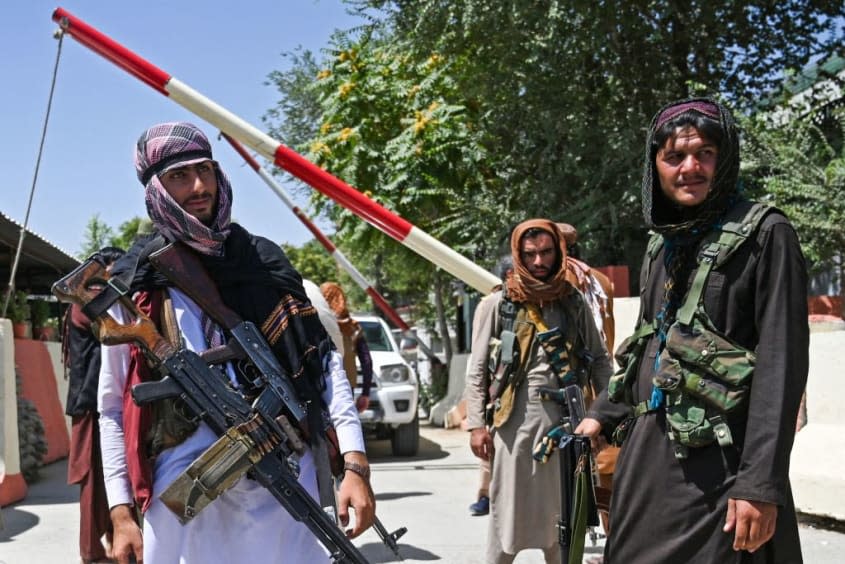Afghan officials, security forces reportedly started selling out to the Taliban in early 2020

- Oops!Something went wrong.Please try again later.
- Oops!Something went wrong.Please try again later.
Secretary of State Antony Blinken conceded Sunday that the Taliban's effective takeover of Afghanistan "happened more quickly than we anticipated."
The domino-like fall of Afghanistan's regional capitals, then the national capital, was years in the making, aided by widespread corruption, an isolated and poorly advised President Ashraf Ghani, President Biden's expeditious withdrawal of U.S. forces and contractors, and demoralized and often unpaid security forces, political and military analysts say.
But "the spectacular collapse of Afghanistan's military that allowed Taliban fighters to walk into the Afghan capital Sunday despite 20 years of training and billions of dollars in American aid began with a series of deals brokered in rural villages" in early 2020, The Washington Post reports. The deals "were often described by Afghan officials as cease-fires, but Taliban leaders were in fact offering money in exchange for government forces to hand over their weapons," and "over the next year and a half, the meetings advanced to the district level and then rapidly on to provincial capitals, culminating in a breathtaking series of negotiated surrenders by government forces."
After the Trump administration and Taliban, meeting in Doha, reached a bilateral agreement in February 2020 for a conditional full withdrawal of U.S. forces, "some Afghan forces realized they would soon no longer be able to count on American air power and other crucial battlefield support and grew receptive to the Taliban's approaches," the Post reports. "The negotiated surrenders to the Taliban slowly gained pace in the months following the Doha deal," and then "the capitulations began to snowball" after Biden announced in April that the U.S. was pulling out this summer.
"Some just wanted the money," but other Afghan officials saw the Doha agreement as an "assurance" the Taliban would return to power and chose self-preservation, an Afghan special forces officer told the Post. "The day the deal was signed we saw the change. Everyone was just looking out for himself. It was like [the United States] left us to fail."
Four U.S. administrations have spent more than $88 billion on Afghanistan's security since 2001, despite "serious concerns about the corrosive effects of corruption" and actual Afghan troop numbers, the U.S. Special Inspector General for Afghanistan (SIGAR) said in a July 2021 report. "The question of whether that money was well spent will ultimately be answered by the outcome of the fighting on the ground."
You may also like
How sociology shows 'policy makers have been looking at vaccine refusal all wrong'
Actor suspected of participating in Capitol attack arrested in California
2020 Census data shows U.S. population is more diverse and urban
